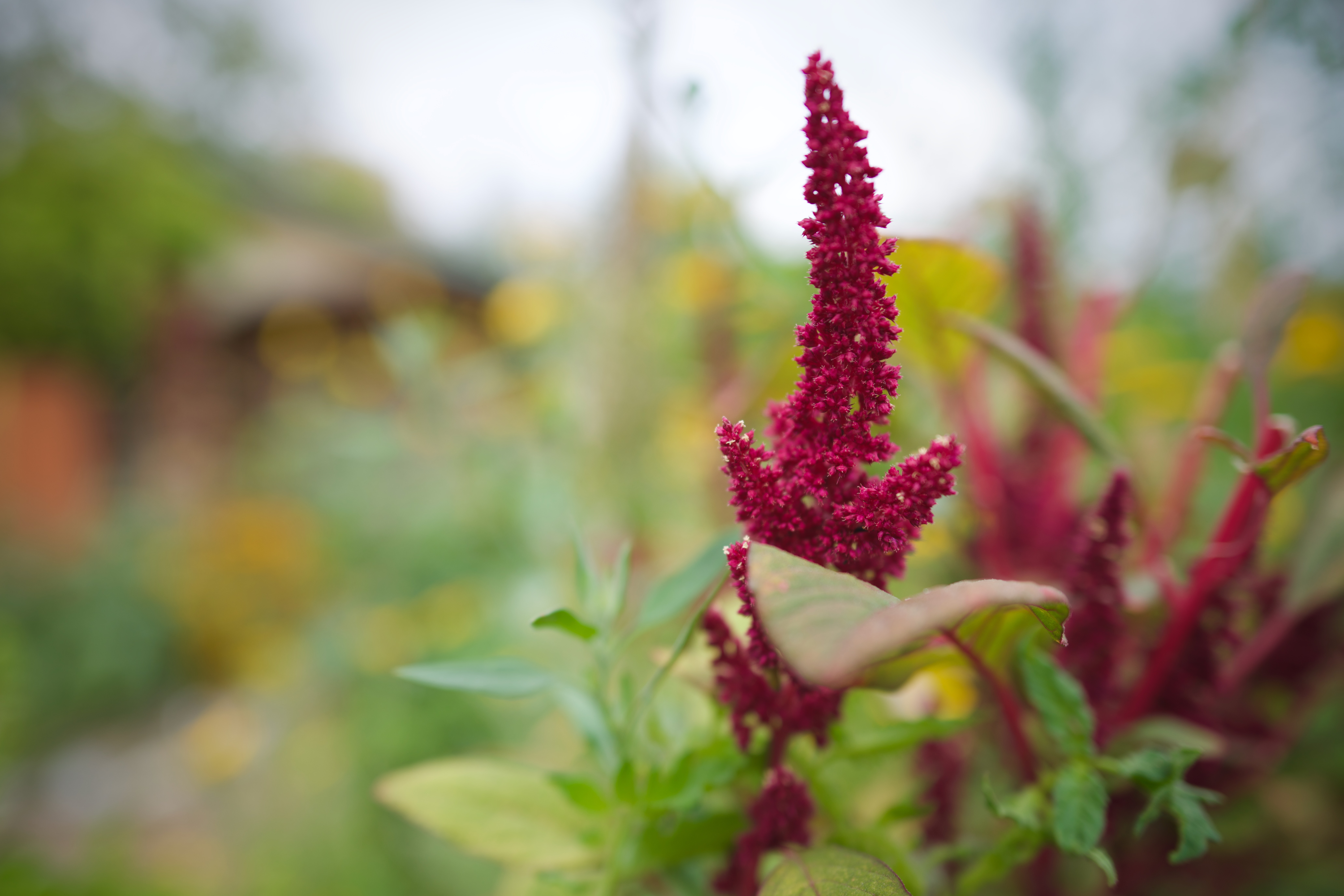by John Gale, WSP Gardening Teacher
The California heat returned again last week, reminding us quickly that summer is not yet over. Squash and chard leaves wilted under the withering sun, bees hummed loudly, and our colony of Western Fence Lizards sunbathed eagerly on the wood chip paths. It’s normal and okay for thin-leafed plants like squash and chard to wilt slightly on hot days, even with adequate water; the transpiration of water evaporating from their leaves is more than what they can drink from the soil. Normally they recover fine come sundown, although prolonged heat waves can cause burning like they did here. Indeed, midsummer heat this year was quite brutal; as recorded in San Josée, July saw average temperatures a full 5°F hotter than July last year, with almost half of the days recording highs over 90°F. Hot indeed, especially for those of us working in the garden!
Yet late in August, we had our first real hint of fall. The fog rolled in from the coast and a few days saw a thick layer of stratocumulus clouds giving us a wide, cool hug. We felt a few spits of drizzle falling from the sky, moistening the garden flowers and releasing their aromas to the breeze. There is some Sweet Wormwood growing in one of the hedges that smells wonderful on these cool mornings; if you elbow your way past the sunflowers and amaranth, you can drink up its sweet herbaceousness by shoving your face right into its feathery leaves. And while you’re there, run your hands through the Black Cherry Tomato leaves and the Genovese Basil that are both in that hedge as well. Nothing smells more to me like late summer than some tomato leaves brushed gently across your skin.
Stepping back to the paths, and speaking of the sunflowers and amaranth, it’s wonderful to see how well they grew this year as tall, colorful pillars of the garden. The Amaranth was such a deep brilliant red and greeted me with joy every time I walked into the garden this summer. It’s hard to identify specific types of sunflowers since there are so many, but one variety grew dozens of small heads so tall and wide that they blocked many of the paths around the garden rings! Another type is hard to identify because I saw the seed head get gnawed off and carried away by a ground squirrel. Turns out sunflower seeds are pretty tasty for all creatures. It’s the perennial problem of growing food in a garden; turns out, all animals are attracted to food. We lost a couple of pumpkins to somebody gnawing through their tops, the bean seedlings got chomped in the bean tipi, and somebody’s been persistently nibbling at the chard. I haven’t gotten a close enough look at the cottontail that visits frequently, but it’s likely a Brush Rabbit which is common around these parts.
Thankfully, despite those frustrations, we were able to harvest many bunches of sweet grapes from the grapevines as an afternoon treat for the summer campers this year. And several of the Sweet Marketmore Cucumbers were chilled and sliced for the campers’ cool snack on a hot day. Through this we can see that life in the garden is strong, and we tend it as best we can for what it is and where we are. As best a metaphor for life as the garden can provide.As we start the school year, I am grateful to this wonderful garden that was built with so much strength and care by those before me. Its flowers peek over the fence and greet all those who arrive on campus. Its strong healthy soils grow so many species of flora, and the gazebo invites anybody to sit and enjoy some shade. As always, there is a lot of work to do; dead poppy stalks to chop down, undesired grasses to pull from the beds, irrigation lines to shuffle here and there, and larger projects on the docket like a water feature and play structure. But the garden welcomes all at whichever stage of life it’s in, and whichever stage of life you’re in. Come walk through the gate, sit for a spell, and listen, see, smell, and breathe. May its calm help guide you in finding yours.
See you in the garden!
Top image: Red Amaranth streaks skyward in the summer garden. Amaranthus cruentus
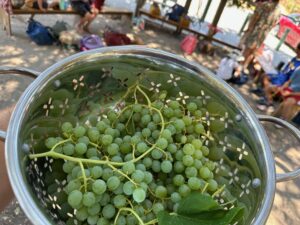
Chilled California Wild Grapes were thoroughly enjoyed by the summer campers on hot days. Vitis californica
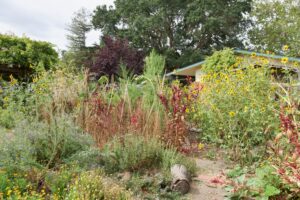
The late summer California garden is a mix of drought tolerant flowers like Sunflower and Amaranth, earlier blooms gone to seed like dried Poppy stalks and the tall Sweet Wormwood in the center, and just general untamed chaos.
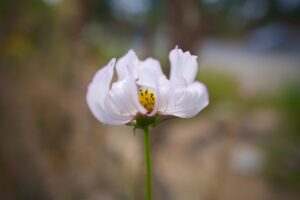
A pink-tinged Cosmos flower lends a bit of elegance to a summer garden. Cosmos bipinnatus
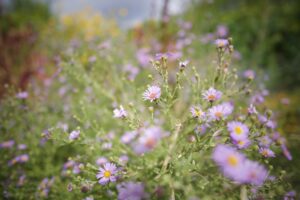
This dry-loving shrubby Aster is often called the European Michaelmas Daisy. Aster amellus

